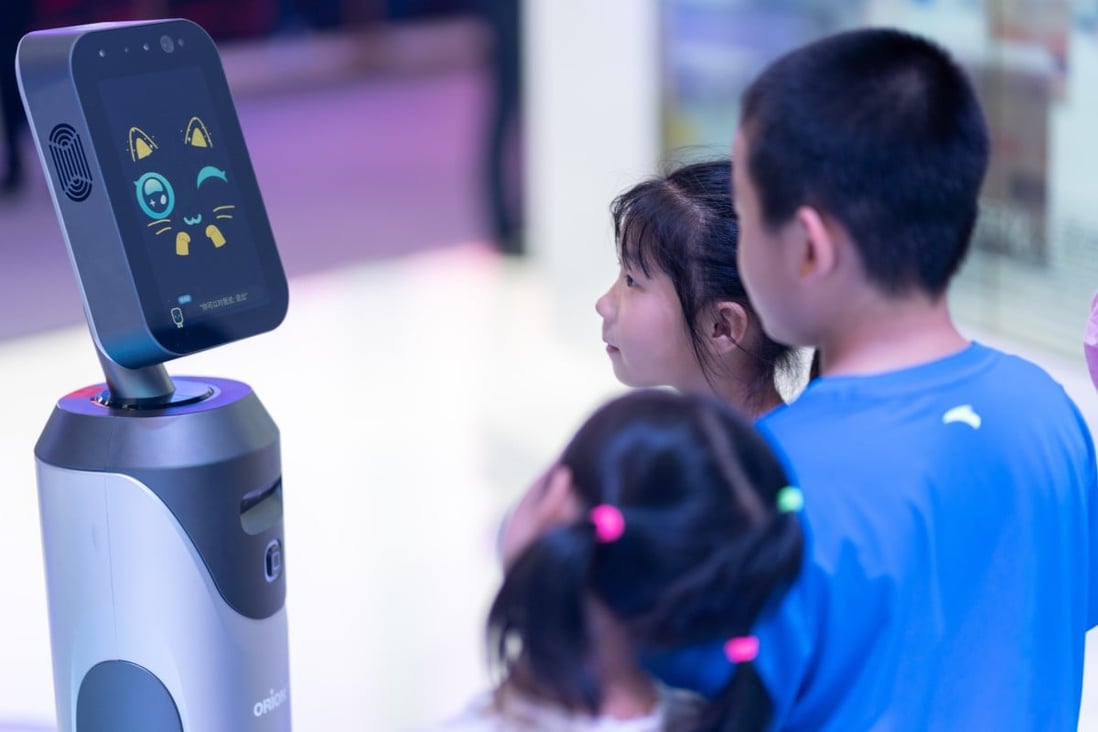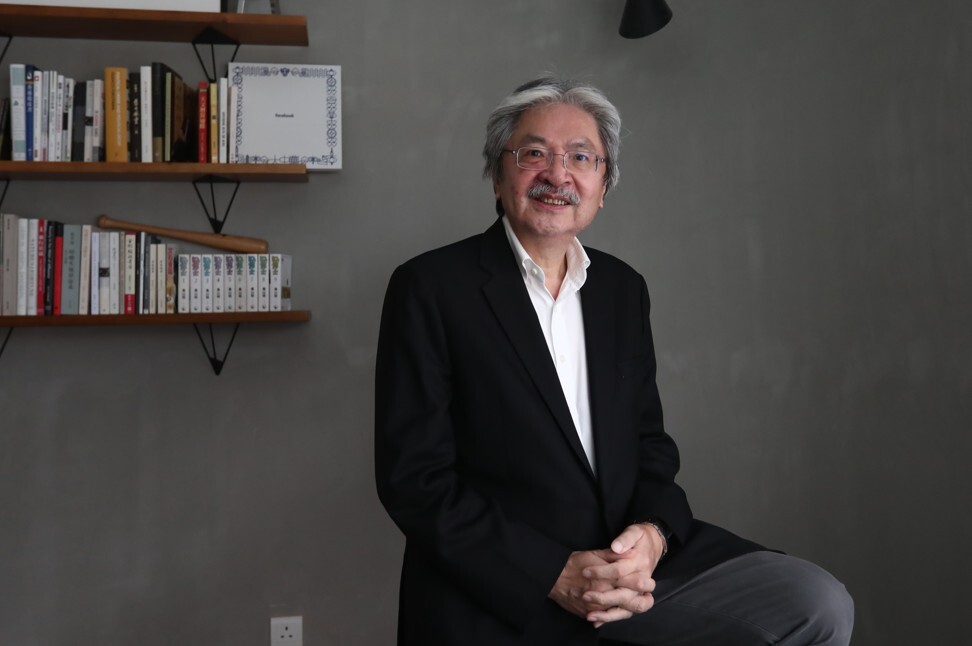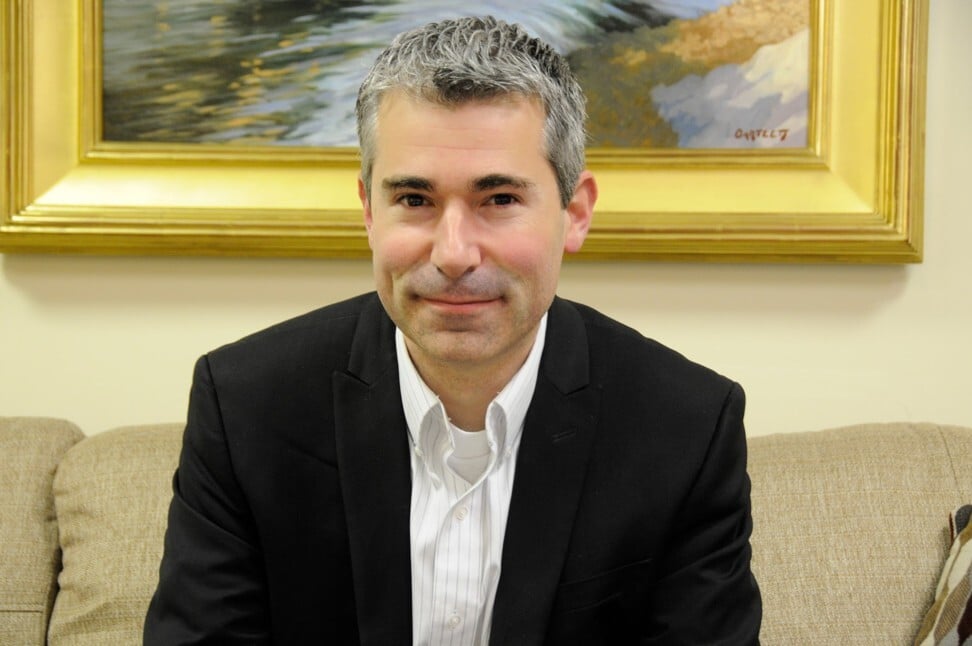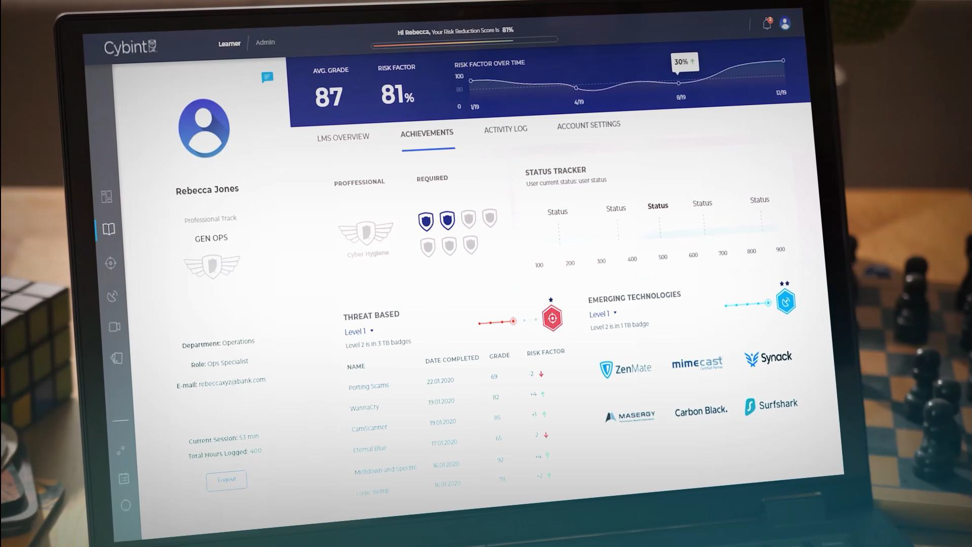Ning, who was one of the international experts and investors offering insights into edtech developments at the virtual event, also said Hong Kong was emerging as a major hub for edtech start-ups.
The summit was co-presented by Esperanza, a non-profit organisation founded by John Tsang, Hong Kong’s former financial secretary, and Cyberport at the Cyberport Venture Capital Forum, an annual tech investment event.
SCMP Global Impact Newsletter
It also featured the Edventures GBA Fellowship scheme, which will offer 10 finalists – chosen from growth-stage edtech start-ups from around the world – access to local partners, investors and market entry advisers, and the chance to test their ideas in new regions.
Fellowship winners will also have the opportunity to travel to Hong Kong, Shenzhen and other cities in the Greater Bay Area next year.
John Tsang, former financial secretary of Hong Kong and founder of non-profit organisation Esperanza, says education is in need of urgent reform and technology will play a key role. Photo: SCMP/Jonathan Wong
Many experts at the summit said the outbreak of the coronavirus disease, Covid-19, was an opportunity to introduce large-scale change.
“We have inherited an education system that has remained largely unchanged since the 19th century,” Tsang said.
He cited a recent study by the Brookings Institution, which predicts that if the current system remains the same, by 2030 half of the world’s young population will lack the basic skills needed to thrive in the 21st century. Tsang said the answer to this problem lies in how we can effectively harness edtech.
Future generations won’t experience classrooms the way their parents did
“The worst way to use technology is to have a kid sit in front of a screen and read content,” said Richard Culatta, CEO of the International Society for Technology in Education (ISTE), who served as an education official in US President Barack Obama’s administration.
“Instead, technology can be used as an active learning tool for the student to create [new content], problem-solve and work with others. That is way more interesting and effective.”
Richard Culatta, CEO of the International Society for Technology in Education, who was an education official in US President Barack Obama’s administration, says that effective adoption of edtech will require a major change in the mindset of educators.
He stressed the need for a change in the mindset of educators who, rather than simply adopt edtech for “edtech’s sake”, should map out specific learning goals and then see how technology can help make learning more meaningful, engaging and effective.
Culatta and other experts also believe edtech companies will need to offer more affordable solutions if they are to cater to the growing demand for blended learning, which combines online educational materials and methods with traditional face-to-face classroom teaching.
Fellowship winner, CoderZ, a platform that helps students from Grades 6 to 12 to learn science, technology, engineering and mathematics skills in coding and robotics, is one such company.
It operates online and uses virtual robot simulations, so schools do not need to buy expensive robotic equipment – making the content accessible to a wider range of students.
CoderZ, one of the Edventures GBA Fellowship winners, offers online gamified virtual robot simulations to help students learn skills in coding and robotics.
CoderZ also uses gamified missions, not unlike video games, to make the content more engaging and improve learning.
“Video games are essentially learning assessments,” Culatta said. “But people love to play them because they immediately get feedback and they have a chance to try again. Kids quickly learn to do complex things.”
Similarly, MEL Science, a platform developed by a team of scientists, including eight people with PhDs and four Science Olympiad winners, brings hands-on science experiments and interactive simulations to life through the use of virtual reality (VR) and augmented reality (AR).
It creates dynamic visual experiences that make learning about intangible things, such as human DNA, more intuitive and interesting.
MEL Science brings hands-on science experiments and interactive simulations to life through the use of virtual reality and augmented reality.
Culatta said edtech tools using artificial intelligence (AI) and data analytics can create a powerful personalised learning experience, including the use of adaptive assessment methods to track each student’s progress individually and allow real-time adjustments to help improve and optimise learning.
“Technology doesn’t just need to be used to answer predetermined questions, but it can be used to actually submit work portfolios,” he said, using an example of his daughter making a video recording of her playing the violin to share with her class.
“It’s really powerful as it shows the students demonstrating their knowledge in a [real-world] context, which is also an important step in measuring learning.”
Culatta said that in addition to gaining knowledge, educators should instil in students the ideas of “digital citizenship” and “digital well-being” – making the virtual world a safe place for learning and being “good humans”. AI, for example, could highlight discriminatory comments that have been made and remind students about the need to be tolerant of different viewpoints.
Future generations will not experience the classroom the way that their parents did, while teachers will act more like a mentor. Photo: Shutterstock
All of the speakers at the summit stressed the need to balance technology with a human touch, and how the traditional role of teachers should be re-evaluated.
Iranian-American entrepreneur Kamran Elahian, chairman and co-founder of Global Catalyst Foundation, a private institution working to improve education worldwide, predicts that students will not have to carry out 18 years of conventional schooling in future.
“The world is changing … the youth do not need the approval of the status quo,” he said. Instead, he believes in the importance of experiential learning, in which students focus on real-world scenarios and learn through trial and error and receive immediate feedback.
He said teachers will act more like coaches or mentors, using AI to help chart personalised learning pathways that students can explore independently.
Joining a company’s workforce may only be the beginning of learning
Other speakers said the traditional route to gaining qualifications may no longer be the norm in future.
Elliott Masie, an e-learning advocate and chairman of The Learning Consortium – a coalition of 125 Fortune 1000 companies focused on workplace learning – said several large US businesses no longer believe a university degree is necessary and, instead, favour lifelong learning.
“We used to think that you studied for a job or career once and the half-life of it was your professional life,” he said. “But today places like Google are finding that the half-life of tech skills may be 24 months. So we have to train people faster, cheaper, better and continuously.”
Elliott Masie (right), e-learning advocate and chairman of The Learning Consortium, has worked with other notable supporters of global education reform, such as Michelle Obama (left), the former US first lady. Photo: Ed Burke
The Swiss non-profit foundation, World Economic Forum, reports that more than one billion people – nearly a third of the global workforce – will need to be reskilled by 2030 as smart technologies transform jobs during the continuing Fourth Industrial Revolution.
However, edtech can help to develop this adaptable workforce.
Masie said instead of offering learning that mimics teaching offered at schools, company human resources departments should encourage exploration, creativity and allow people to make mistakes.
Project-based learning through technology, for example, which gives staff more time to investigate and respond to complex real-world problems, will pique their curiosity and improve motivation and results. Fields that are implementing such learning techniques include high-risk professions such as the US army and navy.
The United States navy uses project-based learning techniques to train its personnel in finding solutions to complex real-life problems – an approach that educators believe can be used in other professions. Photo: Shutterstock
In addition, Masie believes edtech tools using AI should be used to offer real-time advice, support and training to staff while they are performing tasks, via wearables such as an iWatch, smartphones, earpieces – even holograms. US companies such as Colgate-Palmolive and Disney have already used such an approach.
Masie said many of the technologies people have had to use because of the pandemic, such as Zoom, have actually been around for a while, but it is up to the users how best to use them. “There‘s a creative period between when tech comes out and when we actually figure out how to use it well,” he said.
China will share the ‘throne’ with US as global edtech leaders
Education is now a 7 trillion yuan (US$1.06 billion) business in China, which accounts for about 7 per cent of the country’s gross domestic product.
Its edtech industry is flourishing because of an abundance of private venture capital investors, huge demand and favourable government policies.
For much of the world, edtech was first used by schools before parents became involved in using technology at home, but in China, start-ups have traditionally focused on after-school virtual tutoring for the K-12 sector (kindergarten to Grade 12).
Now the edtech industry is evolving rapidly and the technology will be more widely used for teaching over the next few years, Culatta said.
Ning and other experts predict edtech growth in the postsecondary sector, focusing on students at university, pursuing vocational training or distance learning.
“In China, we don‘t have that many white-collar positions for all the graduates, so the government has created new policies to shift kids to vocational schools,” he said.
Bill Ning, founding partner of venture capital investment firm Blue Elephant Capital, sees potential for edtech growth in the postsecondary sector, with augmented reality and virtual reality continuing to play key roles.
Ning also expects AR and VR to play a key role in edtech tools used in this field.
Masie and Culatta both said they see great potential for innovation in China. “They’ve looked towards the West a little too much … I think there‘s more to be created that’s indigenous and mapped to their culture” Masie said.
While the US once dominated the global edtech investment landscape, last year China attracted more than half of the world’s venture capital investments in education.
HolonIQ reported that up to November, 20 edtech unicorns around the world had collectively raised more than US$9 billion in funding over the past decade, with China and the US home to nine and eight of them, respectively.
Ning said Hong Kong is a hotbed of activity for investment companies, which could fund edtech start-ups throughout China.
In addition to attracting investment, Hong Kong is being tipped to become a major hub for edtech start-ups because of the lure of the city‘s excellent education system and thriving talent pool. It is also a major financial centre with promising prospects for companies looking to launch an initial public offering (IPO).
In October, the Hong Kong stock exchange reported that funds raised through IPOs in the first 10 months of 2020 stood at HK$249.1 billion (US$32 billion) – an increase of 66 per cent compared with HK$150.4 billion over the same period last year.
How can edtech live up to its potential?
An African proverb says it takes a village (or community of people) to raise a child – and it also seems to be the case with education. Tsang said that the success of edtech start-ups depends on collaboration between stakeholders outside the classroom, including policymakers, education technology providers, NGOs, investors and the business community.
Culatta said that in addition to a supportive ecosystem, it is vital that edtech solutions have a solid foundation in learning science.
Start-ups that lack the relevant expertise could team up with a university, he said. His organisation has addressed this issue by establishing ISTE Standards – measuring the effectiveness of learning – as a useful tool for app developers.
Edtech start-ups may be good at coming up with innovative solutions, but they need to work with other stakeholders in education to ensure new tools have a solid foundation in learning science. Photo: Shutterstock
It is also crucial for entrepreneurs to have the right attitude, Masie said. “Too many edtech start-ups are about ‘how do we build a company that makes money?’ rather than ‘how do we solve a problem?’,” he said.
“But everybody I worked with who ended up becoming very successful – including Bill Gates and Dean Kamen, who invented [the two-wheeled, motorised] Segway – was motivated by solving a problem first.”
One of this year’s fellowship winners, Cybint Solutions, a global cyber education company based in Israel, helps train workforces and businesses in cybersecurity – something that is increasingly needed around the world.
Israel-based Cybint Solutions, another of the Edventures GBA Fellowship winners, offers digital tools to train and reskill people in cybersecurity defence.
The company aims to reskill one million people in cybersecurity defensive roles in China. Its training tool, which can be used by non-degree students, requires little background knowledge of cybersecurity.
Once individuals graduate from the company’s “boot camp” it will help to place them within government agencies or corporations in the region and continue to upskill them.
At a time when the world is facing the changing demands of the “new normal”, problem-solving edtech tools such as this can make a significant impact.
As Masie said: “The pandemic is an intriguing accelerator which is blowing up the stuff that‘s not working and making us focus on what is.”
























